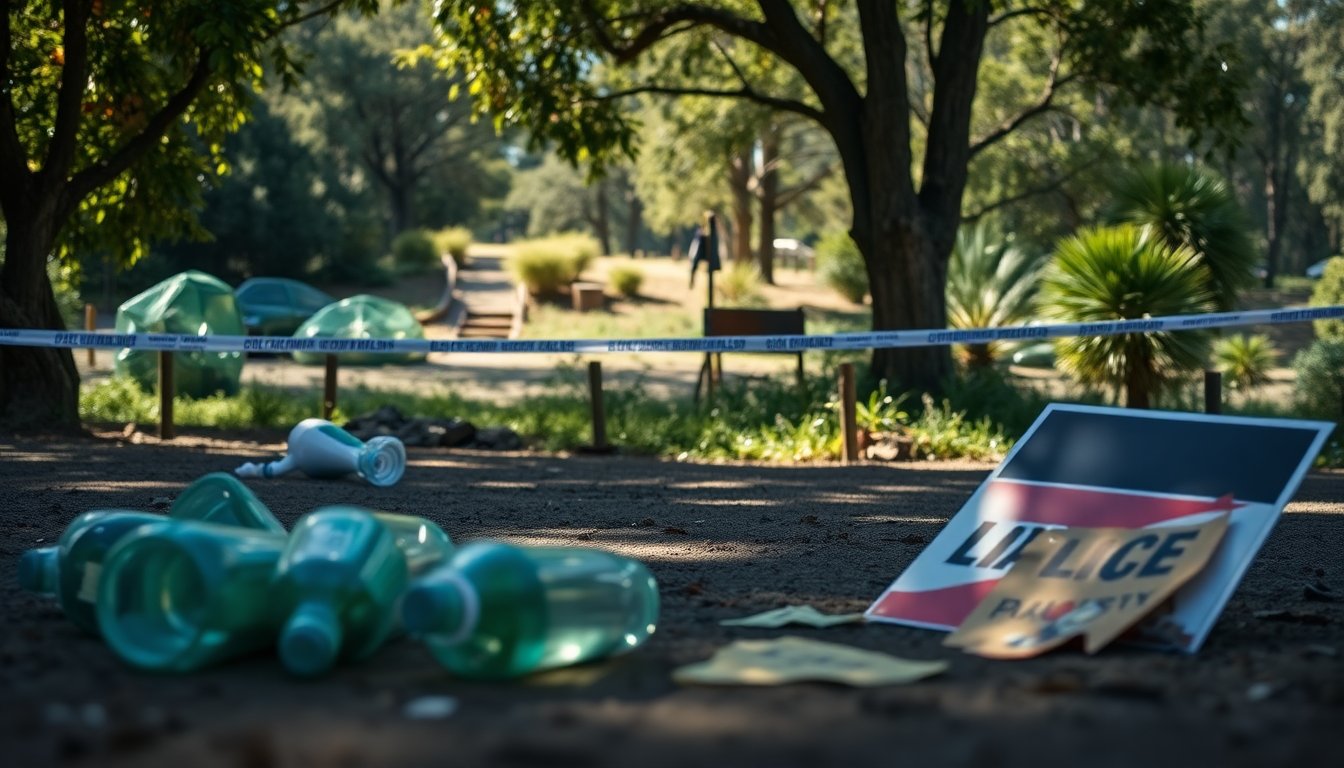Table of Contents
Last weekend, a far-right anti-immigration march in Melbourne escalated into a violent confrontation at Camp Sovereignty, a site of immense significance for Australia’s Indigenous community. This incident resulted in several injuries and sparked a broader discussion concerning police responses and the growing visibility of neo-Nazi groups in the country. Understanding the underlying factors contributing to such violence is essential as the community processes the implications of these events.
The Incident: A Closer Look
The march, organized by the neo-Nazi National Socialist Network (NSN), prominently featured slogans promoting white supremacy. Following the protest, approximately 50 men stormed Camp Sovereignty, situated on the historic burial ground of Aboriginal ancestors. Eyewitnesses reported that the attackers, many dressed in black, confronted individuals present, causing injuries and significant damage to the sacred site.
Accounts from witnesses indicated that the assault involved chants of “white power” and derogatory slurs, as the attackers destroyed Indigenous flags and desecrated the camp’s sacred fire. This aggression against a site dedicated to Aboriginal heritage and healing highlights a blatant disregard for Indigenous rights and the ongoing struggle for recognition and respect within Australian society.
The authorities’ response has raised concerns among community leaders and activists. Reports suggest that police intervention was notably absent during the attack, with officers arriving only after the assailants had fled. This delay has led to accusations of systemic bias and a failure to adequately protect Indigenous Australians’ rights.
Context and Implications
The incident at Camp Sovereignty reflects a larger pattern of rising far-right extremism in Australia. Various reports indicate that the NSN is part of a global network collaborating with similar organizations to promote their ideologies. The increasing visibility of far-right groups and their organized efforts to spread hate represent a significant challenge to Australian society, particularly for marginalized communities.
Community leaders, such as Aboriginal Senator Lidia Thorpe, have underscored the urgent need for systemic change in how authorities address incidents of far-right violence. The senator has called for a comprehensive investigation into the attack and has linked the slow police response to broader issues of racism within Australian institutions.
Moreover, the attack has raised questions about the selective condemnation of far-right violence by government officials. Many members of the Indigenous community feel that their grievances are frequently overlooked or minimized, exacerbating feelings of vulnerability and exclusion. The ongoing struggle for recognition and justice remains critical in tackling these systemic inequalities.
Looking Ahead: The Path to Justice
As discussions about the implications of the attack on Camp Sovereignty continue, it is crucial for both the government and society to confront the realities of racism and extremism in Australia. The recent violence serves as a stark reminder of the challenges faced by Indigenous communities, who have long fought for their rights and recognition.
In light of these events, a call for a nationwide day of action in support of the camp has emerged, signaling a collective stand against the rising tide of racism and violence. Activists and community leaders emphasize that this incident is not isolated but part of an ongoing struggle against a legacy of colonialism and systemic oppression, urging all Australians to unite for a more inclusive and just society.
Addressing these issues requires a concerted effort from all levels of government, law enforcement, and communities at large. The fight against far-right extremism transcends public safety; it fundamentally involves acknowledging and respecting the rights and dignity of all Australians, especially those from Indigenous backgrounds. As the nation reflects on these events, a commitment to real change and justice will be essential in fostering a more equitable future.


